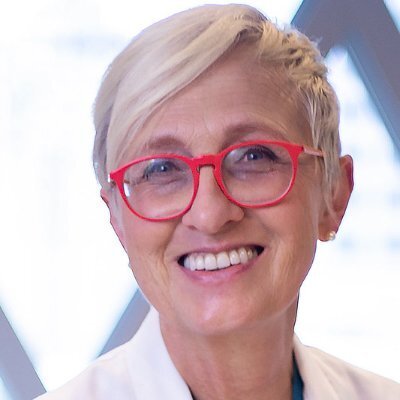
Deprescribing Communication Techniques
-
Register
- Non-member - $25
- Member - $19
Learn how to engage PALTC residents and their families in effective conversations about medication deprescribing with this 30-minute, interactive course, Deprescribing Communication Techniques. Building on the foundational concepts introduced in Module 1, Design Your Deprescribing Intervention, this second module of the series offers a framework and practical strategies to foster trust, promote shared decision-making, and address common concerns around changing or stopping medications.
Areas of Focus
1. Barriers to Deprescribing
2. Residents’ Potential Perceptions When Discussing Changes to Drugs
3. How Willing Are Residents and Family Caregivers to Deprescribe?
4. FRAME Deprescribing Communication Map
Learning Objectives
At the completion of this module, learners will be able to:
• Explore the psychological connections residents, family caregivers, and clinicians have with medications
• Apply the five steps of the FRAME Deprescribing Communication Map
• Implement strategies to manage cognitive dissonance
Background and Development
This module was designed by the Post-Acute and Long-Term Care Medical Association (PALTmed) and the American Society of Consultant Pharmacists (ASCP) as part of the Drive to Deprescribe initiative to optimize medication use in PALTC. Funding for this module was generously provided by the Foundation for Post-Acute and Long-Term Care Medicine.

Arif Nazir, MD, CMD
Arif Nazir, MD, CMD, currently serves as the Chief Medical Officer for BrightSpring Health Services, Primary Care, a large, value-based, geriatric practitioner organization, and the Chief Medical Officer for Signature HealthCARE. He is Past President for AMDA, founding member for the Society’s Innovation Council, and Co-chair of Society’s Drive to Deprescribe initiative. As a healthcare leader, researcher, entrepreneur, and an implementation champion, he continues to focus his efforts on finding practical solutions for solving care coordination gaps and on enhancing leadership and teamwork in the PALTC frontlines.

Jennifer A. Pruskowski, PharmD, MS, BCPS, BCGP
Assistant Professor and Director of Geriatric Pharmacy Research and Education
University of Pittsburgh
Dr. Pruskowski is an Assistant Professor at the University of Pittsburgh School of Pharmacy and the Director of Geriatric Pharmacy Research, Division of Geriatrics, in the School of Medicine, as well as the Associate Director for Education and Evaluation within the Pittsburgh Veteran Affairs Technology Enhancing Cognition and Health Geriatric Research Education and Clinical Center (TECH-GRECC).

Sabine Von Preyss-Friedman, MD, FACP, CMD
Sabine Von Preyss-Friedman, MD, FACP, CMD, is an Internist and Geriatric Medical Specialist and has practiced in Skilled Nursing Facilities since her fellowship at the University of Washington in 1988. She first became a certified Medical Director in 1992 and has since been enthusiastically engaged in Medical Direction of Skilled Nursing Facilities. In 2011, she was honored by AMDA/Society of Post-Acute and Long-Term Care Medicine as Medical Director of the Year. She is Associate clinical Professor Emerita at the University of Washington and Chief Medical Officer of Avalon Healthcare. As a Medical Director and Chief Medical Officer she is involved in Quality improvement, developing standards and outcomes measures in our facility and the successful translation of medical evidence into clinical care. Her mission is to support the best care possible medical care for all of our patients. Dr. von Preyss-Friedman currently serves as the president of the Washington State Society of Post-Acute and Long-Term Care Medicine.

Chad Worz, PharmD, BCGP, FASCP
Chad Worz, PharmD, BCGP, FASCP is Chief Executive of the American Society of Consultant Pharmacists (ASCP) in Alexandria, Virginia, the only international professional society devoted to optimal medication management and improved health outcomes for all older persons. ASCP's senior care consultant pharmacist members manage and improve quality of life for geriatric patients and other individuals residing in a variety of environments, including nursing facilities, subacute care and assisted living facilities, psychiatric hospitals, hospice programs, and home- and community-based care. Dr. Worz received his Doctor of Pharmacy degree from the University of Cincinnati College of Pharmacy in Ohio, and he is a board-certified geriatric pharmacist. His career has focused on the medication management of older adults. Dr. Worz developed an innovative clinical practice in a long-term care setting in Ohio and directed the pharmacy practice of a regional, independent pharmacy serving 10,000 long-term care residents. Dr. Worz established a nation-wide, geriatric-based consulting company to educate and serve nursing facility residents, nursing facility administration, long-term care pharmacies, and the public through a comprehensive knowledge of medication use. He is a national thought leader, presenting on pharmacy- and medication-related topics, and he has served on a number of national boards related to pharmacy and medication utilization.
- 0.5 CME
- 0.5 CMD Management
Enduring Material Release: 12/16/2024 | Expiration Date: 12/16/2026
Accreditation Statement
Post-Acute and Long-Term Care Medical Association is accredited by the ACCME to provide continuing medical education for physicians.
AMA PRA Category 1 CreditTM Designation
Post-Acute and Long-Term Care Medical Association designates this enduring material for a maximum of 0.5 AMA PRA Category 1 Credit(s)TM. Physicians should claim only the credit commensurate with the extent of their participation in the activity.
ABPLM CMD Credit
This CME activity has been pre-approved by the American Board of Post-Acute and Long-Term Care Medicine (ABPLM) for a total of 0.5 management hour(s) toward certification or recertification as a Certified Medical Director (CMD) in post-acute and long-term care medicine. The CMD program is administered by the ABPLM. Each physician should claim only those hours of credit actually spent on the activity.
Financial Disclosure
The Association requires the disclosure of all speaker/faculty/planner’s relevant financial relationships; presence of off-label use of a device or medication; and discussion of any experimental, new, or evolving topic prior to each accredited education activity.
If the learner perceives any bias toward a commercial product or service, advocation of unscientific approaches to diagnosis or therapy, or recommendation, treatment, or manners of practicing health care that are determined to have risks or dangers that outweigh the benefits or are known to be ineffective in the treatment of patients, please report this to the Association's staff.
None of the planners, faculty, speakers, or anyone else in control of content disclosed a relevant financial relationship with an ineligible company.

